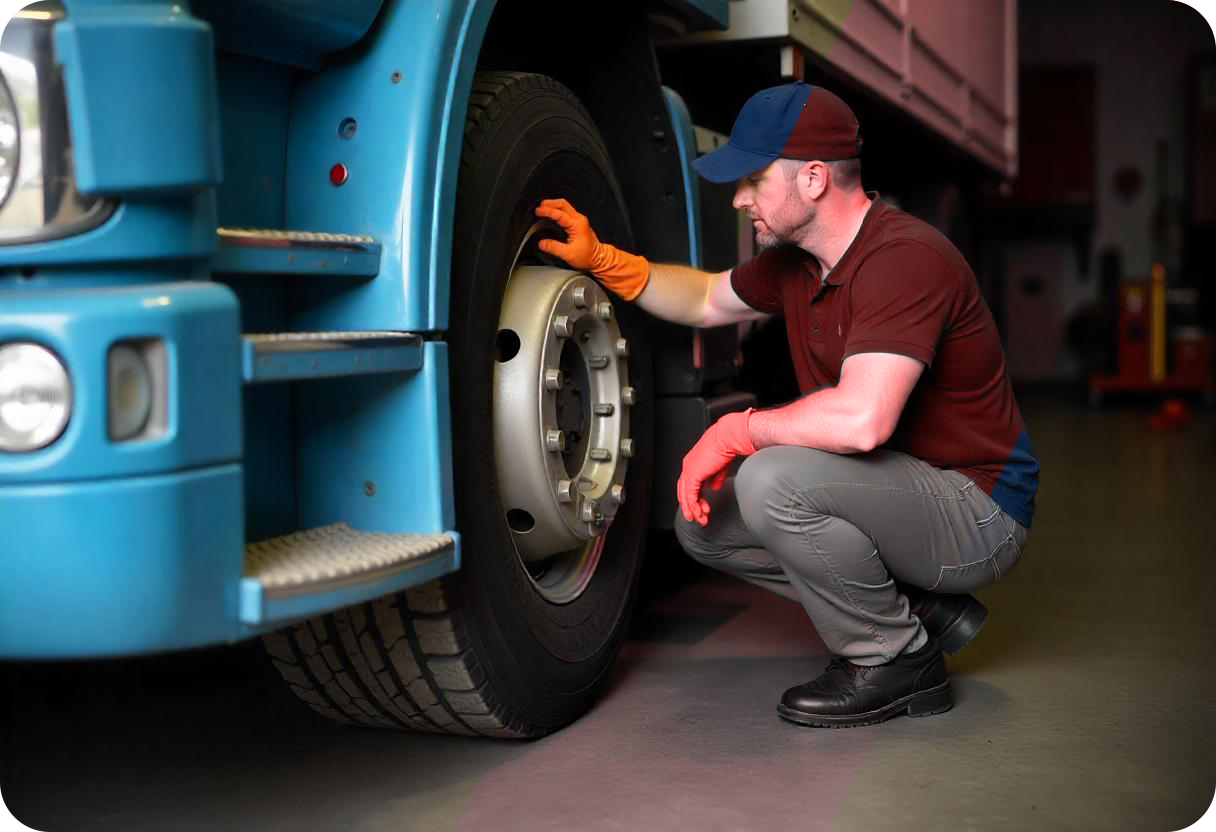When Do Commercial Vehicles Need a Tire Change?

Tires play a critical role in the safety, performance, and efficiency of commercial vehicles. Whether you operate a van, truck, or a fleet of vehicles, knowing when to replace your tires is essential to ensure road safety and minimize downtime and maintenance costs.
🚧 Signs Your Commercial Vehicle Needs New Tires
Tread Wear
If the tread depth falls below the legal limit (usually 1.6 mm), it’s time for a replacement. Worn treads reduce grip and increase stopping distances—especially in wet conditions.Cracks, Bulges, or Cuts
Visible damage to the sidewalls or tread, such as bulges, deep cuts, or cracks, can compromise tire structure and lead to blowouts.Uneven Wear
Irregular wear patterns may indicate improper wheel alignment, over- or under-inflation, or suspension issues. If caught early, alignment can be corrected—otherwise, tire replacement is necessary.Tire Age
Even if the tread looks fine, tires should generally be replaced every 5–6 years, regardless of mileage. Rubber degrades over time due to exposure to UV rays, temperature changes, and load stress.Increased Fuel Consumption
Worn or incorrectly inflated tires can increase rolling resistance and raise fuel costs—especially important in large fleets.Reduced Braking Performance
If the vehicle takes longer to stop or feels unstable when braking, tires may be the culprit.
🧰 Routine Tire Inspections
Commercial vehicles should undergo regular tire checks—ideally every few thousand kilometers or monthly. Include:
Tread depth measurement
Visual inspection for damage
Checking inflation pressure
DOT code check (for tire age)
🚛 Don’t Risk It — Replace on Time
Delaying a tire change in commercial vehicles can lead to:
Dangerous driving conditions
Increased operating costs
Downtime from tire-related failures
Fines for non-compliance with safety regulations
Replacing tires on time helps keep your drivers safe, your cargo protected, and your business running smoothly.
✅ Final Tip
If you’re unsure whether your tires need replacing, visit a certified tire service center for a full inspection. Prevention always costs less than repair.








